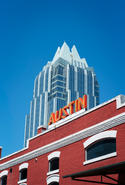I always do my best to make time for Lenny Mills because he’s earned that sort of consideration.
Mills is the fellow who wrote several pieces under the banner of his trademark “7 Rules” outline, where he applies the tricks he learned as a telemarketer to analyses of real estate development, politics, and other matters. read more »






















